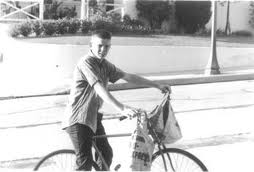Being an entrepreneur can feel like this.
You’re stepping from the light, into a very dark room.
It also can be the complete opposite…its like you just walked through the gates of a circus and you’re being hit from all directions–most just want to take your money.
This is why having an experienced and knowledgeable business coach and consultant is extremely helpful.
Crosscutter Enterprises is your personal and professional business coach and consultant with 30 years’ experience. Your success is my business.
I guide you in the dark, protect you from the circus, and handle the tough stuff!
You can’t afford not to have a coach! Email me today at John.Knotts@crossctr.com and let’s discuss your business success!
Planning, Communication, Marketing, Leadership, Management, Improvement, Training, and Facilitation.
